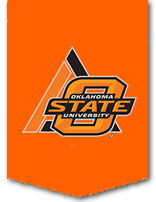FAPC client creates all-natural liquid soap
By Carrie Leach
FAPC Communications Intern
Initially, Grier developed an agricultural-based powdered soap that was good for the environment, but she also wanted to learn the steps to create her own business. As a result, she attended the Basic Training Workshop at the Food & Agricultural Products Center on the Oklahoma State University campus.
By attending the Basic Training Workshop and with the help of Chuck Willoughby, FAPC Business Planning and Marking Specialist, she learned how to make her product line ready for market.
"We were very involved as Udder Farms was in a 'start-up' phase with the products formulation assistance, plant layout and design, equipment identification and cost analysis,” Willoughby said. “Although Udder Farms is now a thriving business, we continue to assist with their marketing needs, such as discuss pricing calculations for their liquid concentrate."
Grier soon realized the market demand can change, and although she started her business with the dry powder laundry soap, a company needs to be flexible and change with the needs of their consumers.
“When I tried different markets with the powdered soap, I found out the large commercial markets want liquids because it’s already water soluble and most all the commercial washing machines for the government and car washes are set up for liquid soaps,” Grier said. “I had to figure out how to take the product from a powder to a liquid, and it’s taken me five years.”
The ingredients used in the ready-to-use concentrated liquid soap are basically the same as in the powdered soap, such as vegetable oils and minerals. However, the liquid soap has a potassium base, so the wastewater can be put back into the soil as a nutrient.
Another reason Grier decided to manufacture liquid soap instead of powder is most all the manufacturing facilities, including the pilot plant at the FAPC, have mixers that are not set up for dry powdered soaps.
“By using the knowledge gained through the FAPC, I have expanded my product to a liquid formula,” Grier said. “Now people in the Middle East are very interested in my product. The soap is shipped as a thick gel concentrate, so there are no shipping charges on the water.”
The amount of water added to the paste will determine if the product is an all purpose cleaner or concentrated laundry soap.
By adding 10 percent soap to 90 percent water, the product becomes a household cleaner. The less water that is added the stronger the concentrate for laundry uses. Essential oils are used for the aroma, so nothing is artificial, not even the smell.
Grier said when the ready-to-use concentrate is used for household laundry, the clothes are less wrinkled and softer, and the soy wax in the concentrate helps resist stains. The product also whitens the whites and decreases the amount of lint in the dryer, so bleach or dryer sheets are not needed.
Although the product is beneficial for household use, Grier is looking at other markets as well.
“I’m working with the car wash industries, and they see great potential that this product will work for them,” she said. “We are in the process of adjusting the formula of the concentrate to work best with the flow of the high pressured water.”
Grier also said some companies are thinking about recycling the grey water back into the car washes.
She claims one value of using the natural, agricultural based soaps is the grey water tests showed the soap is 100 percent natural, and the wastewater can safely be put back into the water supply.
“In the car wash tests, our product cleans compatible to the chemical cleaners, but does a better job removing grease and making chrome shine,” Grier said. “It also washes and waxes in one step because I used soy wax in the formula.”
Even though Grier’s organic, liquid soap has shown promise in both the household and car wash industries, she is keeping her options open.
“We are waiting for markets to develop because we don’t know which direction would be best for this product,” Grier said.
For more information on Udder Farms Cream of the Crop products, visitwww.udderfarms.com.
- ### -
Oklahoma State University, U.S. Department of Agriculture, State and Local Governments Cooperating. The Oklahoma Cooperative Extension Service offers its programs to all eligible persons regardless of race, color, national origin, religion, sex, age, disability, or status as a veteran, and is an equal opportunity employer.

